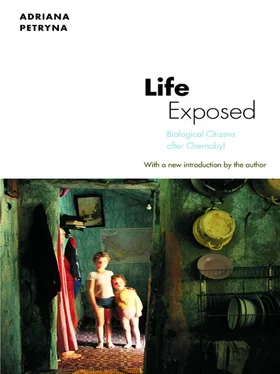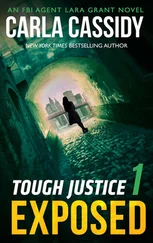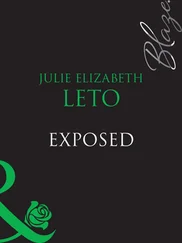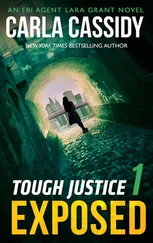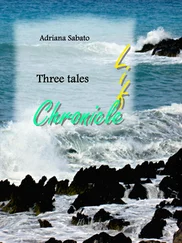From the kvartyra to the hospital—the characters of this illness narrative came together around Halia’s beaten body. The callous neurologist Nezdorov worked in the hospital and had heard from Anton that Halia was hospitalized. When I visited Halia a few days later, she was in the middle of an argument with Nezdorov. She said she needed a forensic report from him. Yet concerns about institutional survival, enduring gender domination, and an entire medical balance of power shifted in Anton’s favor. Nezdorov made it clear that he had no interest in writing a forensic report compromising Anton’s social status. Halia pleaded with him, “Vadim, look at my body, I ask you to do the right thing.” She said that every night at home she slept in fear, “with clothes on and keys in my hands. I cannot stay with Anton anymore. I cannot bear hearing him refer to my father as a worthless, old, decrepit man ( kalika ). He says he wants to bury the kalika himself.” Halia continued making her case, drawing on the moral authority of family and combining it with a dreadful evocation of her confinement in it: “He curses my mother’s photograph…. He goes to the institute and gives the impression that everything is normal in the house, but in the meantime he tells me, ‘I will kill you morally and physically.’” Nezdorov listened and said, “It’s the organic brain damage.” Halia wept: “He seeks pity from everyone about his state, that life is bad for him.” She said, “My nerves are shot, my soul is sick, it’s pouring out of me. The sedatives don’t help. I said to Anton as he was beating me, ‘Was there ever a time where there wasn’t food on the table or an unclean house?’”
Daughter Sasha entered the hospital room, this time with a bag full of syringes and pills. (The hospital no longer provided basic medical supplies.) Halia demonstrated to all of us how Anton beat her. “He knows how to hit,” she said, looking at Nezdorov, “on the side of the palm where it hurts him the least.” She showed us where he had hit her—over the head, the temples, the face, the kidneys.” Nezdorov listened and told Halia that she needed to get a computerized tomographic brain scan. Nezdorov said he could refer her to a private diagnostic firm that would charge about sixty dollars—an unreasonable cost, given her lack of money.
Two days later, I met the doctor over some sandwiches at a local café. He bragged about his connections with the boss of the local medical-labor committee. I asked him whether he could clarify Anton’s medical condition. He refused. He preferred to talk about Anton’s relationship with Lev. Anton had promised Lev that Nezdorov would help in arranging a higher disability status for him (level two). Quite openly, he implied that he was profiting from those interactions. When I asked how Lev could have had so many diagnoses, Nezdorov said that he had paid the doctors. But he insisted that both men have the “brain organic syndrome.”
In mid-September, Anton called again. This time he accused his daughter Iryna of stealing money from him. He asked me where Halia was. I didn’t tell him, but I was sure he knew. Anton offered further justification for beating her. This time he related his violence to money, to “being robbed” by his daughter and son-in-law. According to him, the young couple had come over to the apartment the day Anton beat Halia. “It was their fault,” he said. “They took our savings and a leather coat that Halia and I had been saving for months to give to Iryna on her birthday.” Anton started to weep. He said, “Halia is the insane one.” He said he’d “kill [him]self,” that there was “nothing to hold on to,” and that he had not “found a place for [him]self.” His shifted from the present tense, where there was no fixed place for him, and said that even his unconscious was now populated by the insane: “I dream about insane people. They invade my dreams.”
Two weeks later, Halia called me from the hospital’s public telephone. She said she needed some amitriptyline, but that her daughter couldn’t find it in the state drugstores. I found some readily available for over-the-counter sale at a commercial drugstore. She reiterated her difficulties in leaving Anton. She said that “someone with experience” had told her that she had little chance of divorcing Anton because “I have to prove that Anton is mentally ill.” But that was nearly impossible at this point.
Anton called again. He asked whether I had Sasha’s telephone number. He then asked me whether I knew if there was a bed available in the Radiation Research Center. He wanted to go there to get reexamined, he said. He also asked whether I had seen Lev at the center. Anton seemed to know that the institution’s medical-labor committee was about to begin a new session of medical reviews—this meant that cases would be assessed and dismissed, extended, or upgraded. I checked the hospital records that day; they indicated that Lev was residing in hospital room 502, but the nurses told me that there was no one in that room by that name.
I had not seen Lev for a month and a half. He seemed to have just disappeared. I learned that members of the fund were furious with him because “he represented the fund in an unauthorized way” in order to procure a level two disability. One member caustically said that Lev had promised the center’s manager, Mudrak, gas and other resources in exchange for a guarantee of lifetime disability. The last time I saw Lev was in a corridor as he was leaving the office of Ihor Demeshko (the medical-labor committee’s representative). He had a distinct look of triumph on his face and said he was off to a health sanitorium. Anton had to work the system one more time and try again the following year.
Halia stayed in the hospital for a month and a half. During this period, not once did she or her daughter Sasha step into the kvartyra to get Halia’s things. Little Halia stayed with Iryna, who had not contacted her mother at all during this trying period. One day Halia asked me to accompany her on a walk to the apartment to get some of her things. I agreed to, with some hesitation, and met her the next day at the hospital. We first went to the militia station near the apartment block. The policeman on duty agreed to come with us. He was short and burly, sympathetic, but cautious. He changed out of his uniform into civilian dress. As we walked, Halia began to tell the policeman what had happened, but he said he was already familiar with the Nimov case. He told Halia quite plainly, “There’s no way we could just take him this time,” and advised her thus: “Anton should never know that we have no power over him.” The balance of power had apparently shifted in his favor again.
Fortunately, Anton was not in the apartment. Yet signs of his shattered existence were everywhere. A large mirror to the right of the entrance door had been broken. There was blood on the floor mixed with pieces of shattered glass. The policeman sat down on the couch, and I stood near the door. Halia rummaged through piles of clothing, throwing items she needed into a plastic garbage bag. Suddenly, her hand touched a metal object in the pile. It was an iron with a heavy metal base. The object was wrapped in a cloth that formed a kind of a handle. Halia lifted it up to show the policeman and said, “He wrapped it so that there wouldn’t be any fingerprints on it. This would have been me.” The policeman told Halia to take the object with her. She decided to put it back into the pile. The iron reminded me of a desperate comment Anton had made several months back: “There was life. There was butter. There was milk. I can’t buy an iron. Before I could buy fifty irons. The money was there. My wife’s salary is less than the cost of one iron.”
Читать дальше
